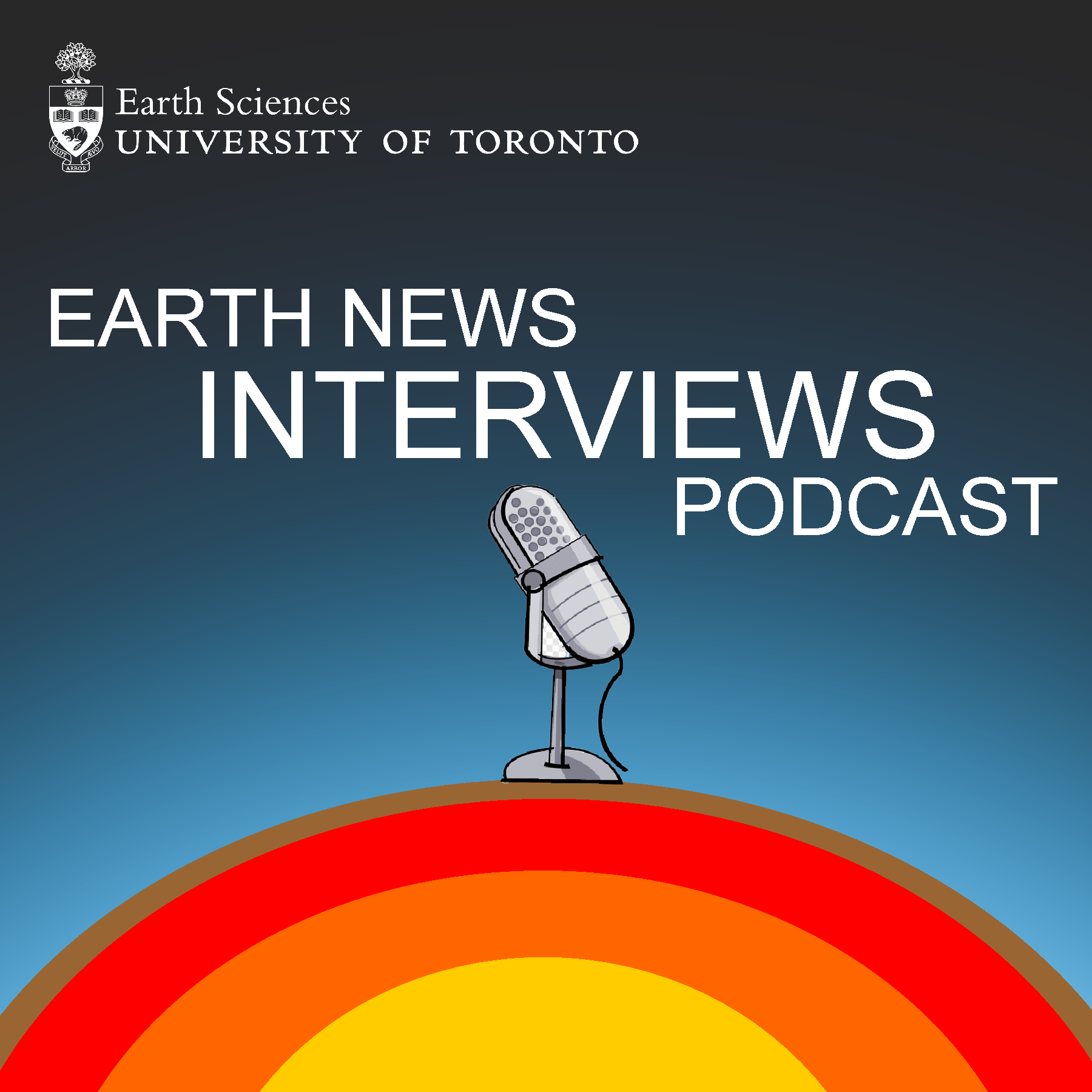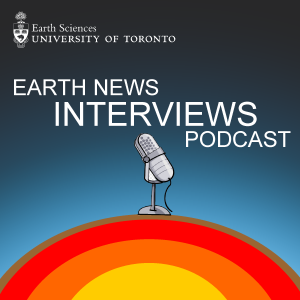
3.7K
Downloads
27
Episodes
We’re back for an all-new season with a new team! Our hosts sit down with an earth scientist and discuss the most recent developments in their field and how these discoveries impact all of us. This podcast is supported by the Department of Earth Sciences at the University of Toronto.
Episodes

Sunday Jan 03, 2021
Special New Years Episode
Sunday Jan 03, 2021
Sunday Jan 03, 2021
For this special New Year's episode, Dean and Sofia trade news stories about new discoveries in the Earth Sciences. The discoveries include the finding of the world's oldest crater, a prehistoric tsunami, and the best way to regrow forests. We finally talk about how we started our podcast, and thank the people who have given us invaluable feedback and made it all possible! Here's to 2021 and a brand new year of science and discoveries!

Sunday Dec 20, 2020
Continental Drip with Oguz Gogus
Sunday Dec 20, 2020
Sunday Dec 20, 2020
Compared to other foundational scientific breakthroughs like Mendeleev's periodic table, Einstein's relativity, and Watson Crick and Franklin's double helix DNA model, the discovery of plate tectonics is the youngest and one of the most influential in the Earth Sciences. Since the 1960's geoscientists have been building upon John Tuzo Wilson's groundbreaking plate tectonic theory including Dr. Oguz Gogus who is a professor of geophysics from Istanbul's Technical University. We discuss the continental drip theory, which explains why the geologically active region of Central Anatolia has been uplifted over a very short period of geologic time.

Sunday Dec 06, 2020
The Plastic Problem with Miriam Diamond
Sunday Dec 06, 2020
Sunday Dec 06, 2020
What happens when the Canadian government tries to simultaneously decrease fossil fuel demand at the same time as giving subsidies to big oil producers? In this episode, we talk to Professor Miriam Diamond, a contaminant scientist and prolific advocate for climate change action. We discuss the carbon and plastic lock-in problem, and how divergent and contradictory policies have thrown a wrench in our plans to reduce greenhouse gas emissions.
Primary Sources Discussed:
https://www.thestar.com/opinion/contributors/2020/10/13/are-we-locked-into-a-plastic-future.html

Monday Nov 16, 2020
Ultrafast Metamorphic Reactions with Xu Chu
Monday Nov 16, 2020
Monday Nov 16, 2020
We're used to thinking of geologic phenomena as events that take millions of years. Think mountain building, subduction, or even the rock and carbon cycles. In this episode, we talk with Assistant Professor Xu Chu about a new discovery in metamorphic petrology: ultra-fast fluid-rock interactions and what they mean for earth system processes through geologic time.
Primary Readings Discussed:
Instantaneous rock transformations in the deep crust driven by reactive fluid flow

Sunday Oct 25, 2020
Geoscience Education: Field Course Roundtable
Sunday Oct 25, 2020
Sunday Oct 25, 2020
In this special episode of Earth News Interviews, we host six guests in a round table discussion about field courses and their place in geoscience programs. Should they be required for a degree? What are some new methods in teaching the material traditionally learned in the field? How can we ensure people aren't excluded from both the opportunities field courses provide and from a career in the earth sciences?
Primary readings discussed:
2. https://www.earthmagazine.org/article/geology-everyone-making-field-accessible

Wednesday Oct 14, 2020
Microfibre Pollution with Samantha Athey
Wednesday Oct 14, 2020
Wednesday Oct 14, 2020
In this episode, we discuss original University of Toronto research on Earth's microfibre pollution problem. What are microfibres? Where do they come from? What can we do to help turn the tide? All of this and more with U of T's own PhD. Candidate, Samantha Athey!
Primary Readings Discussed:

Sunday Sep 27, 2020
Fracking Induced Seismicity with Dr. Semechah Lui
Sunday Sep 27, 2020
Sunday Sep 27, 2020
It's often inconceivable that we can have such a big impact on the environment around us, but nonetheless, humanity has molded the planet to meet its needs. This molding came with its own unintended consequences: Fracking induced seismicity is the crust responding to oil and natural gas exploitation by releasing energy. Even though most of these energy releases are small, some of them are registered as fairly large earthquakes that have the potential to cause infrastructure damage. We talk to induced seismicity expert Dr. Semechah Lui to find out more about the causes and risks of fracking induced seismicity.

Sunday Sep 06, 2020
The Ocean and Carbon Sequestration with Elizabeth Phillips
Sunday Sep 06, 2020
Sunday Sep 06, 2020
Removing excess carbon in the atmosphere generated from human industrial activity is one of the most relevant geoengineering feats of this century. But what if we told you the oceans and coastal areas have been doing this naturally for billions of years? In this episode, we sat down with PhD candidate Elizabeth Phillips to talk about speeding up the rate of carbon removal in the ocean. We discuss possible dangers to ecosystems, global challenges and social responsibility.
Primary reading discussed:

Sunday Aug 23, 2020
Monitoring Volcanic Eruptions with Paul Ashwell
Sunday Aug 23, 2020
Sunday Aug 23, 2020
Volcanoes have captured the imagination and intrigue of the human civilization because of their unpredictable and destructive nature. Today, hundreds of volcanoes are being monitored for potential warning signs that precede an eruption including gas emissions, seismic tremors and ground deformation. We sit down with volcanologist Paul Ashwell to ask how the monitoring of volcanoes has improved over the last half century and what challenges still lie ahead.
Primary reading discussed:

Sunday Aug 16, 2020
The Nuclear Waste Storage Problem with Don Davis
Sunday Aug 16, 2020
Sunday Aug 16, 2020
In this episode, we discuss both the engineering and socio-political problem that nuclear waste storage has posed since the 1940's. Dealing with tonnes of radioactive waste that needs to be safely stored for hundreds of thousands of years is no easy feat, and as such it has been passed off to every new generation of scientists and engineers. Dr. Donald Davis has worked with radioactive elements in more ways than one in the Jack Satterly Geochronology Laboratory at the University of Toronto. We ask him about his research for the Nuclear Waste Management Organization and what it will take to pave the way for for a cleaner, carbon-free energy industry.
Primary Readings Discussed:
